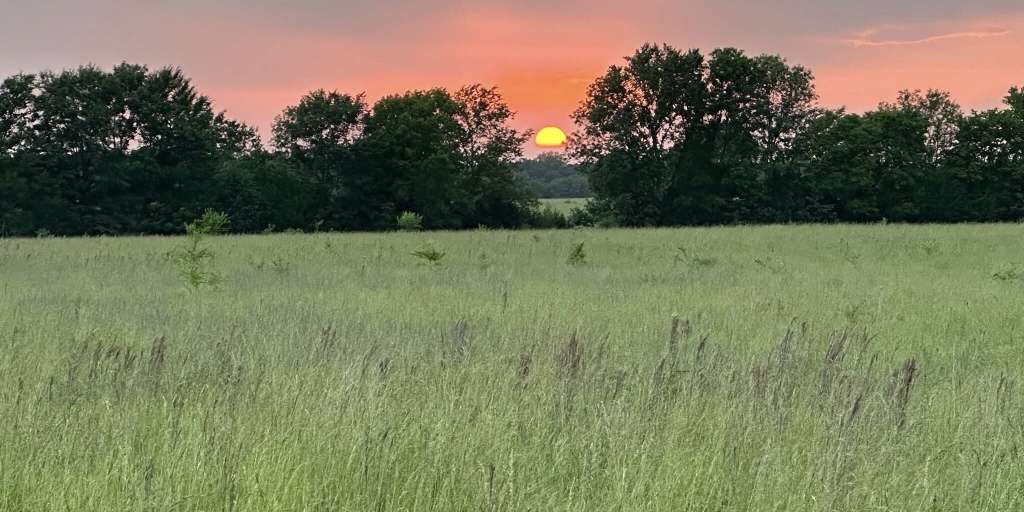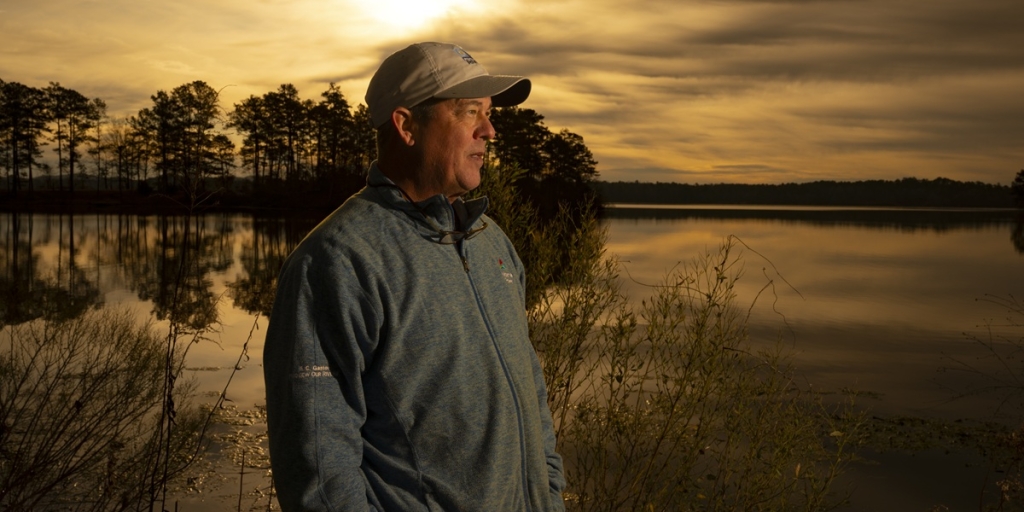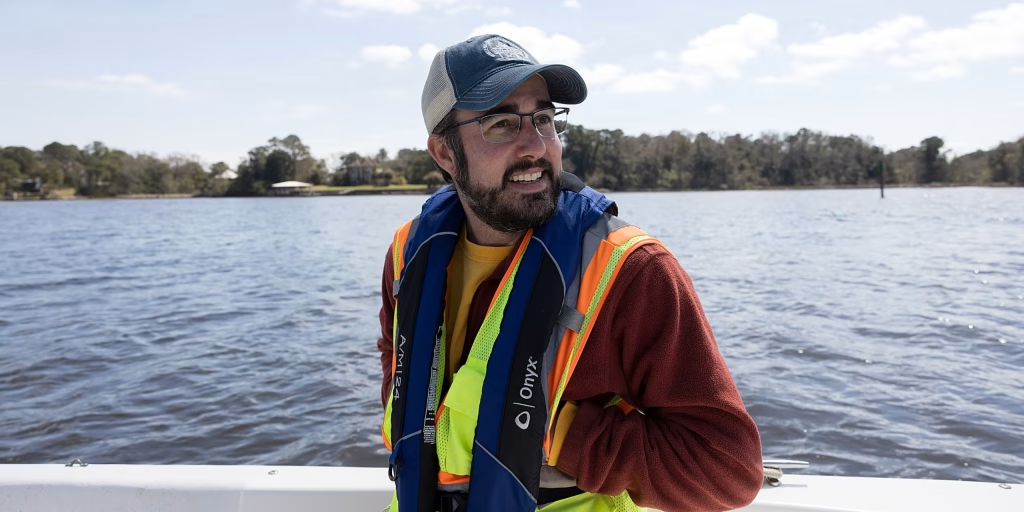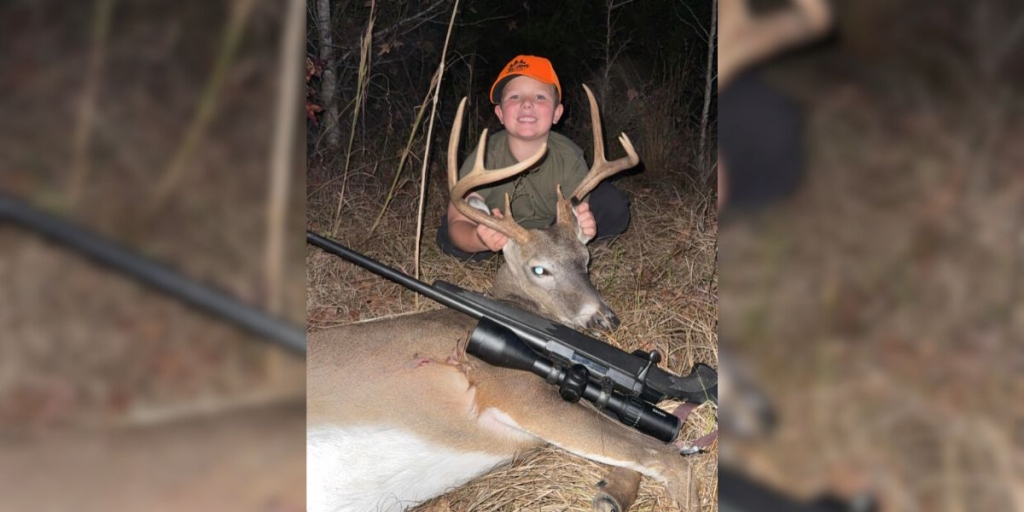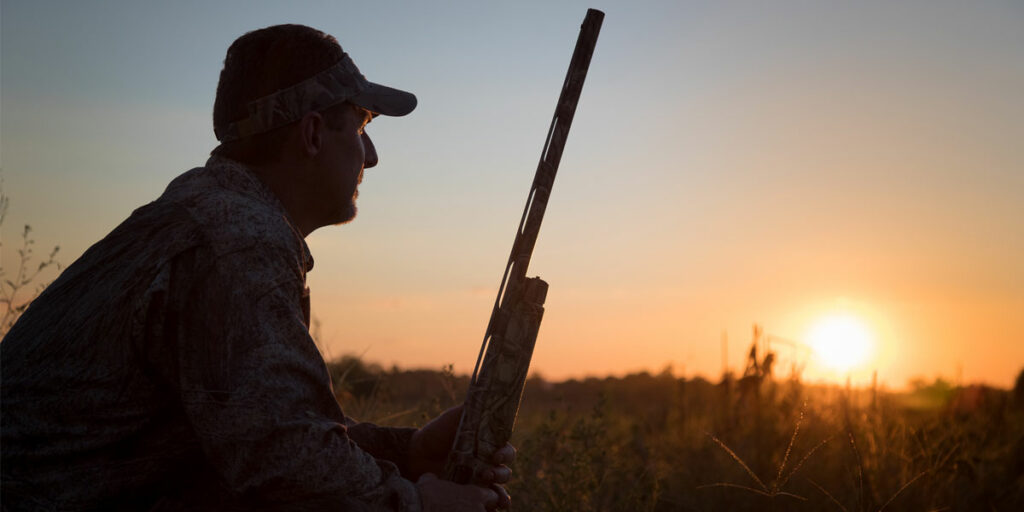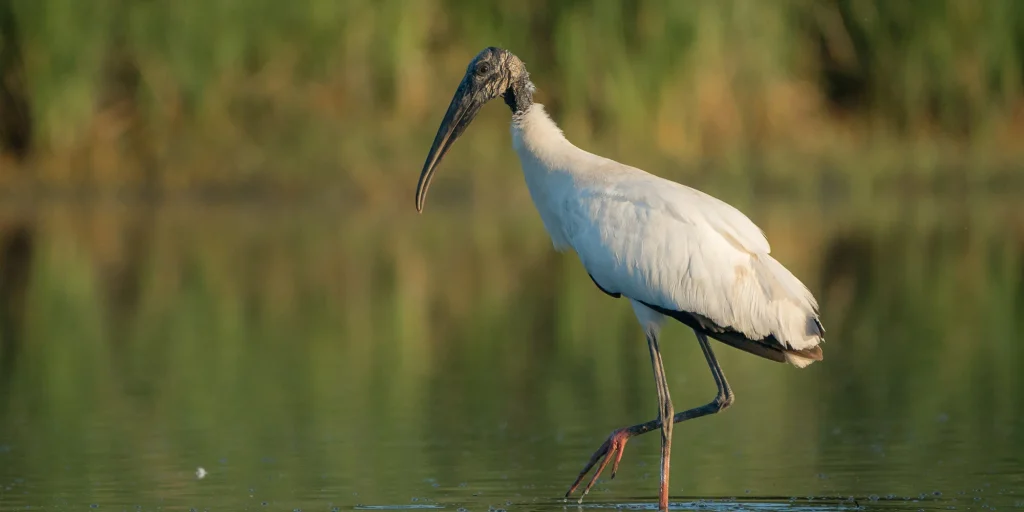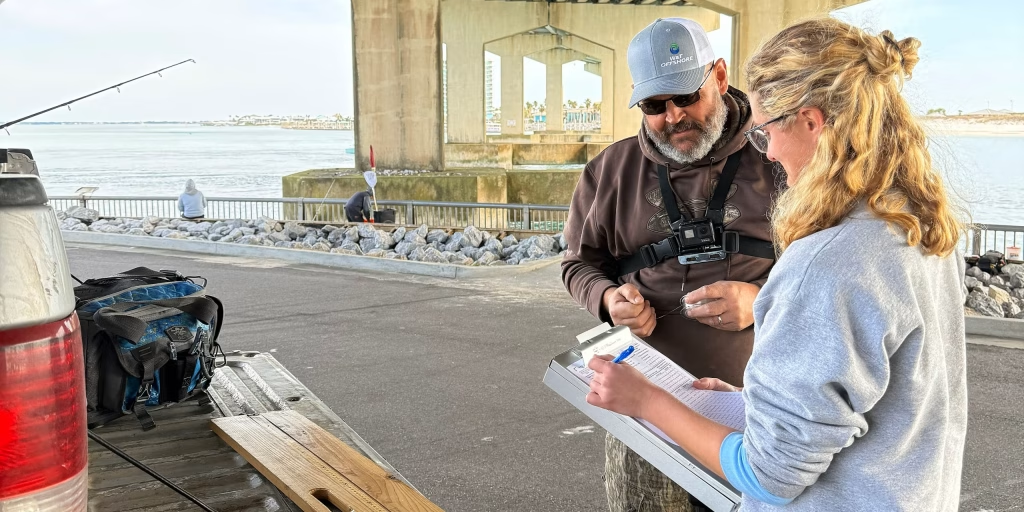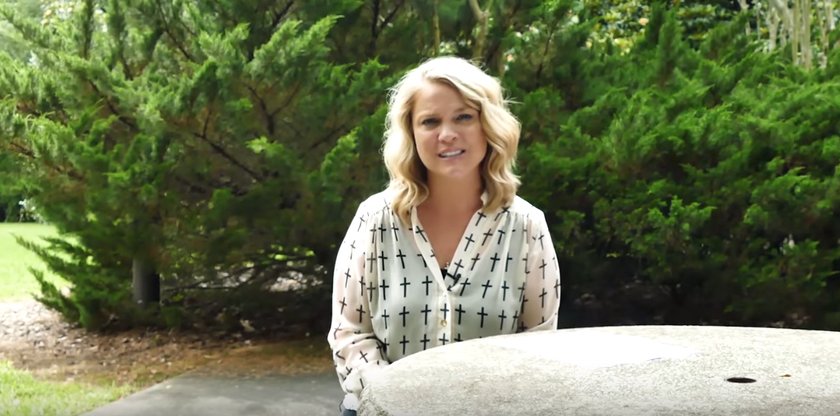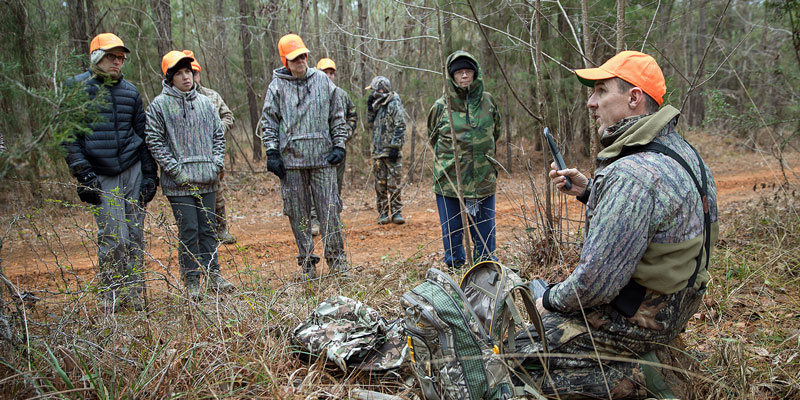
A group of five scored what might be considered the lottery for hunters who want to pursue white-tailed deer in the Black Belt of Alabama.
Those lucky hunters were selected in a random drawing to participate in the Alabama Wildlife and Freshwater Fisheries (WFF) Division’s Adult Mentored Hunt Program.
Before the weekend was over at Cedar Creek Special Opportunity Area in Dallas County, one participant had shot a firearm for the first time and followed that with a shot that sent her home with venison. One hunter made a 10-hour drive from central Florida to participate and also went home with venison. And another hunter, who didn’t have time to pursue hunting during his military career, was able to bring his 12-year-old to join in all the activities as a guest, including watching his father take his first deer and an additional one during the event.
The Adult Mentored Hunt Program was developed to facilitate new or novice hunters in their quest to learn the skills necessary to pursue Alabama’s wild game. The most recent hunt treated those five hunters – Mary Beth Brown, Esther Conde, Chris Forman, Marynell Winslow and Jeffrey Bogue – to weekend hunts like those available at one of Alabama’s premier hunting lodges with a notable exception. That exception was personal instruction from a variety of WFF personnel.
Before the hunters ever sat in a hunting stand, they underwent instruction in firearms safety before participating in a live-fire event at the lodge range. The hunters also learned about the function of the Division and how it operates, wildlife management, the use of safety equipment while hunting as well as shot placement.
That shot placement instruction served Conde well when she shot a 4 ½-year-old, mature buck. Her shot dropped the buck in its tracks.
“I’ve done several BOW (Becoming an Outdoors-Woman) events,” said Conde, who traveled from St. Cloud, Fla. “That’s more educational. This is more of an experience. We got instructions on all the equipment. It was hands-on and we could actually use it. I felt more comfortable in what I was doing. Even if I didn’t harvest a deer, I felt comfortable enough when I got home I was going to be able to apply what I learned.”
Conde was definitely in the hot spot on the 6,000-acre tract with 25 deer spotted on her first hunt. She was not comfortable with any of the shots presented and decided to wait.
The afternoon hunt was markedly different.
“We saw three deer soon after we got into the blind,” she said. “Then I decided to shoot. It was all about when I felt comfortable. It felt right. I didn’t feel any pressure.
“I got really, really excited. When the buck got right to the perfect spot, I did what my mentor told me, breathe and squeeze the trigger. I didn’t even know if I’d shot it. My mentor said, ‘you got it.’ I looked in the scope and there it was. He dropped right there. In the classes, they show you where to shoot and have a decoy to show you. It was a perfect shot.”
Other than the deer meat, Conde said she is taking more back to Florida.
“The confidence, the confidence,” she said. “I’ve already called my son. He’s 19, and we do these things together. We’ve never been confident enough to try it. I told him now we’re going out the first weekend we’re not working.”
Despite growing up in Winfield, Ala., Mary Beth Brown had never even fired a gun.
“Over the past few years, I realized I was interested in going hunting, but I didn’t have anybody close to me that hunted,” she said. “I had some distant cousins but I really wasn’t comfortable asking them. I just Googled adult hunting in Alabama and found the program.
“I sent in the application. I got lucky. When we went to the range, I found it was a lot less scary than I thought it would be.”
The only problem was that Brown and her mentor, Marianne Hudson, realized on the final hunt that Brown was shooting right-handed but was left-eye dominant. After some practice and letting a couple of deer walk, Brown found looking through the scope with her left eye worked best.
“There was a buck behind the doe, but the buck was facing away from me,” she said. “He walked off and never turned around, so I got the scope on the doe. She was in the perfect position. I took the shot. I didn’t feel nervous at all. I had decided to take the next shot that was doable.
“Even if I hadn’t shot something, I really enjoyed it because I don’t know many hunters. It’s been great talking to everyone and learning about their experiences. I was really actually glad I was able to get a deer. Even if I hadn’t shot a deer, I still learned so much.”
The person who went home with an ice chest filled to the brim with venison was Jeffery Bogue, who bagged a buck and a doe during the Saturday afternoon hunt.
Although Bogue got his hunter education certificate when he was 16, he didn’t have much of an opportunity to hunt before he joined the Army. After a 20-plus-year military career, he settled in Alabaster and recently decided to get involved in hunting with his son, Vincent.
Bogue also was surfing the internet when he found the mentored program, applied and was selected.
“You just can’t beat it,” Bogue said. “This is such a great opportunity for inexperienced hunters to come out and work with the mentors. They were so helpful with everything and getting in the right position. If I had gone out on my own, there would have been no way I would have been as successful as I was during this event.
“Now we’re going to have our freezer stocked with venison. I can’t wait to try some burger like we had at the event.”
WFF’s Justin Grider, the Adult Mentored Hunt Program coordinator, said one-day mentored hunts had been available in Mobile County for a couple of seasons, but this is the first for the program on a statewide scale. The hunts are available to adults 19 years of age or older.
Grider said the response to the mentored hunt program has exceeded his expectations with applications coming in from all over the state as well as Florida, Georgia and Tennessee.
“We opened the process in September,” Grider said. “I was apprehensive that there wouldn’t be very much demand for the program. I was surprised and excited that that wasn’t the case. We’ve had 115 applicants and more than 40 percent were female. We’ve had participants from 19 years to 78. I’d say the majority have been folks in their 30s, 40s and 50s.”
Grider said the applicants cover the societal spectrum and those selected are done by random computer drawing, so he has no idea of the roster for the hunts until the draw is completed.
“We’ve had teachers at UAB, who are doctors with private practices,” he said. “We’ve had high school teachers. We’ve had people in the professional trade industry, whether it’s HVAC or welding. So, we’ve had folks from all walks of life and different personalities. It’s really been fun getting to know our hunters. With the random-draw process, we never know who our hunters will be or where they’re from, so it’s been fun.”
Grider has also discovered that sometimes the students in a mentoring situation can provide as much insight as the mentors.
“We’ve had some really great groups, and we’ve learned a lot from them,” he said. “A lot of times when you’re hunting, you’re predisposed to doing things certain ways. So, when you have folks from different walks of life, who have different experiences than you, it allows them to see things through a different lens. They ask questions, and that allows you to dig into your reasoning and why you do things the way you do.”
Grider said what connects all the applicants is they want to learn something new and to take control of where their food comes from.
“When they get here, we have a welcome portion where we get to know each other, and we learn why they applied for the program,” he said. “The common theme each hunt is they want to have control over where their food comes from and to be able to provide for themselves.”
Grider couldn’t have been happier with the outcome of the most recent hunt despite the cold weather.
“It’s great to see them do that and to see them go home with coolers full of their own meat,” he said. “We feed them several different dishes with venison. We share recipes with them, and on Saturday, we let them get involved in a cooking workshop, where they execute a simple burger recipe. They grill the burgers and eat their own venison creations.
“They learn how to hunt. They learn how to prepare the deer, and they learn how to apply those recipes at home.”
Visit this link for information on upcoming mentored hunts.
David Rainer is an award-winning writer who has covered Alabama’s great outdoors for 25 years.




